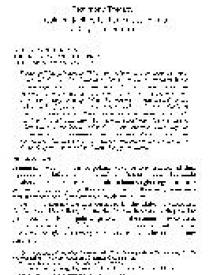Testimony therapy : Treatment method for traumatized victims of organized violence
Former political prisoners in Chile gave testimony of their traumatic experiences, which resulted in diminishing their posttraumatic symptoms. Based on this experience, testimony therapy has been developed and used in treatment of traumatized victims of war or other organized violence.
This short-term therapy, as it applied in the treatment of traumatized asylum seekers and refugees in Centrum '45/De Vonk in the Netherlands, is described in this article. The therapy consists of 12 sessions in which patients tell their life stories, including the traumatic experiences. The narrative is reflected in a written document that, for example, can be read to family and friends, or be sent to a historical archive.
This article discusses the preliminary research data on the effects of testimony therapy. Finally, hypotheses on the working mechanisms of testimony therapy are offered.
Geachte bezoeker,
De informatie die u nu opvraagt, kan door psychotraumanet niet aan u worden getoond. Dit kan verschillende redenen hebben,
waarvan (bescherming van het) auteursrecht de meeste voorkomende is. Wanneer het mogelijk is om u door te verwijzen naar de bron
van deze informatie, dan ziet u hier onder een link naar die plek.
Als er geen link staat, kunt u contact opnemen met de bibliotheek,
die u verder op weg kan helpen.
Met vriendelijke groet,
Het psychotraumanet-team.
In: American Journal of Psychotherapy ; ISSN: 0002-9564 | 57 | 3 | 361-373
https://doi.org/10.1176/appi.psychotherapy.2003.57.3.361
Open Access


